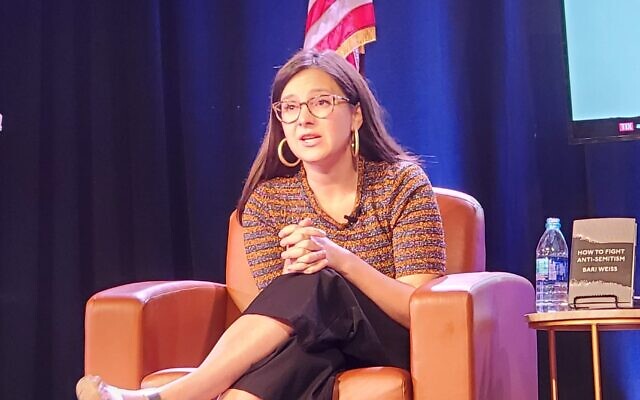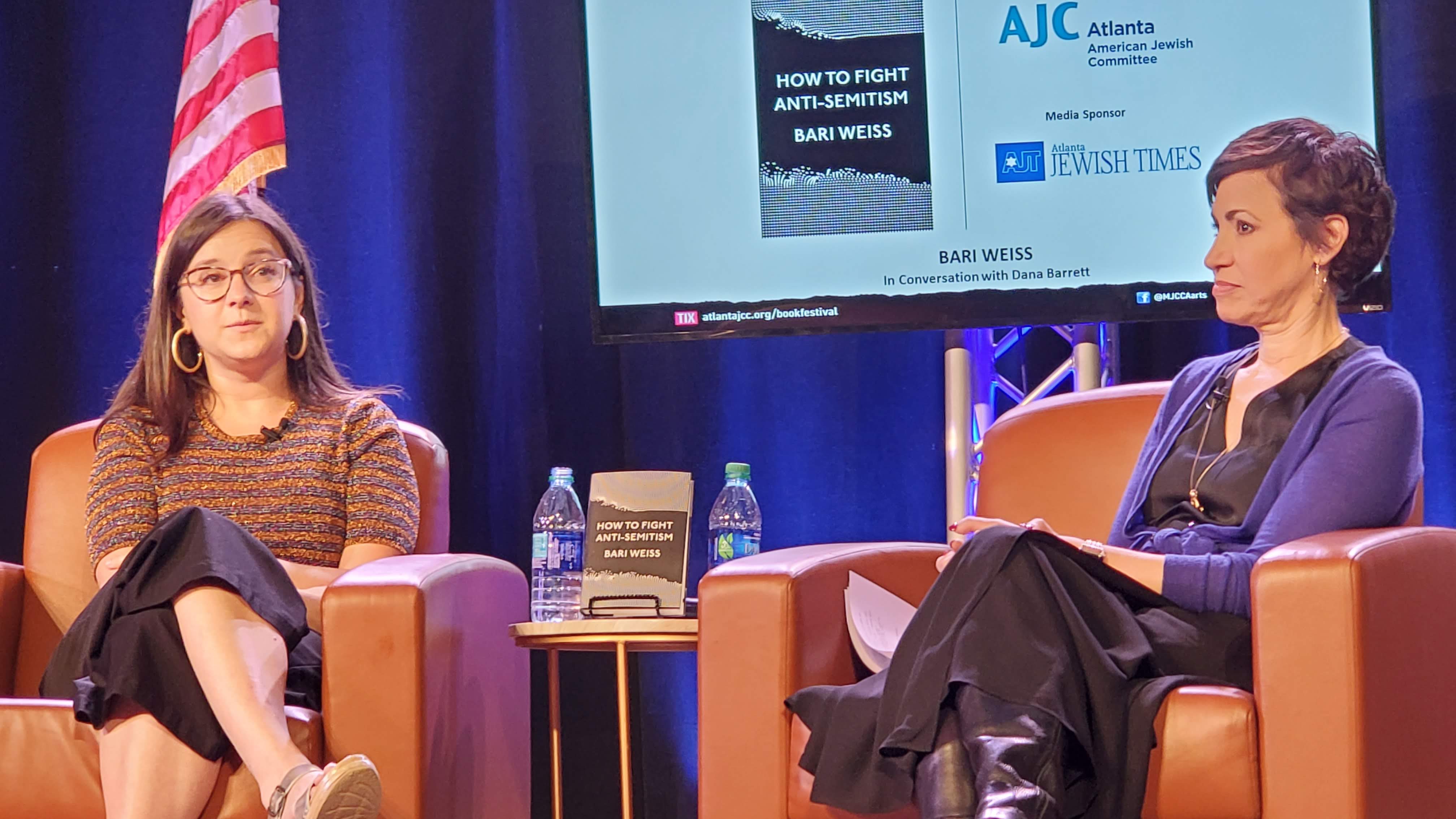Combat Anti-Semitism with Jewish Pride
Promoting her book, “How to Fight Anti-Semitism,” Bari Weiss spoke with an intense energy during an interview by local radio talk show host Dana Barrett.

Bari Weiss has a lot to be disgusted and disturbed about these days. Whether it’s anti-Semitism that led to the shooting at her Pittsburgh Tree of Life synagogue, radical Islam, or extremism on either side of the political divide, the opinion writer and editor for The New York Times had plenty of material to discuss at the Book Festival of the MJCCA Nov. 16.
Promoting her book, “How to Fight Anti-Semitism,” Weiss spoke with an intense energy during an interview by local radio talk show host Dana Barrett, who is running for Congress. The Saturday evening book event was sponsored by the AJT and AJC Atlanta, known for fighting anti-Semitism.
Like the beginning of her book, Weiss started by explaining how she learned about the Pittsburgh shooting. For many, Oct. 27, 2018, is to Jews what Sept. 11, 2001, is for all Americans, she said. Weiss was in Arizona set to give a speech to a Jewish organization when she received a WhatsApp family group text from her sister about the shooting, and her first thought was about their father, “a promiscuous Jew” who prays at several synagogues, including the Tree of Life. Her father wasn’t there, but he knew seven of the 11 killed and she knew two, Weiss said. “Pittsburgh is a very special and sort of unique Jewish community. … One reasons it’s special is it’s sort of small enough that it functions a little bit like a modern shtetl.”
It was very normal for her to attend a Shabbat dinner Friday night with people of different political and religious backgrounds, read from the Torah the next morning at a Conservative synagogue followed by a Shabbat meal with a Chabad family and then play basketball at the JCC, she said.

Before the shooting, Weiss said she felt like she took a “holiday from history.” She knew Jews had a long record of persecution, but never thought it would happen in America in a place so intimate to her.
In addition to growing up in a very politically engaged family, “I was raised to believe, maybe like many in the room, that America was just exceptional, and in many ways it is. I don’t want to discount that. But I really believed the idea we were sort of exempt from the tragedy of Jewish history, that all the terrible things were behind us or at least in other places. And I have to say I’m really reassessing the truth of that myth in the past two years.”
She pointed out the lines between anti-Zionism and anti-Semitism. Those who call themselves an anti-Zionist and support the Boycott, Divestment and Sanctions movement on a college campus, for instance, are not necessarily anti-Semitic.
Instead of trying to “convince people we are not that bad,” a challenge for Jews is to embrace being a “perpendicular” counterculture, “the idea of our difference being something really, really good, something to be celebrated, as something that is a source of our strength,” Weiss said.
In addition to radical Islam, Weiss is concerned about political extremism.
White supremacy is the most physical threat to Jews, she admitted, but it’s easy to label a neo-Nazi as the enemy. Still harder is to “look across the living room or the dinner table or inside your own political tent and say oh my G-d, how could my enemy have this kind of proximity to me.”
So what’s the best way to fight anti-Semitism? “The only hope we have to be able to fight is if we’re … returning to a sense of who we are and deepening our sense of Judaism,” she said. “If there’s an opportunity to be gained from this moment, it’s to use it as a way to dig deeper into figuring out who we are.”



comments